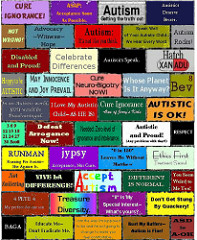Helping the awkward new student seemed like a good idea, so why did it make everything worse?
In fourth grade I changed schools between the third and fourth quarters. I not only changed schools, but also entirely different states, as my mother took my sister and I with her to live with Grandma for a few months. (I do not know the circumstances behind this; adults did not feel the need to explain things to children.) Undoubtedly it was to be to my benefit, because my initial fourth-grade teacher was a poor example of the profession, and I did not mind leaving her classroom. Another benefit to me was leaving the cohort of students I had been with for the past few years; I hoped the new students would be “nicer”. Unfortunately, I was an odd little girl and apparently went through life with a sign on my back that read “clueless,” as I was to be picked upon where-ever I went.
All transfer students face the same challenges of adjusting to different neighbourhoods, buildings, teachers, textbooks, rules, and grading schemes. Apparently it did not take long for the teacher to catch onto the fact that I was not adjusting and making friends in the hoped-for manner. Presumably a request was put to my classmates to help me by offering me encouragement. I have no idea how this was instituted; like many of the subtler or implicit social things, the effort was completely off my radar.
One of the reinforcement mechanisms the teacher had was a “warm-fuzzy” type box for the students to drop in anonymous notes praising each other for various activities. These were read aloud by the teacher once a week. After I had been there for a couple of weeks there was an abrupt flurry of missives complimenting me on my efforts at spending time on reading or being helpful in my classroom duties. I found such approval odd, for we all had the same duties, and reading was simply something I enjoyed. Why should someone be commended for having fun?
Actually, I found such praise to be entirely unrewarding, and the realisation of that sat uneasily upon my young mind. I did not have the concept of “hollow praise” in my mental world yet. But I knew that although the words given to me were accurate, they lacked any semblance of real meaning. If the immediate purpose of this exercise was to boost my self-esteem or to comfort me, it truly did not work. Rather, it made me more anxious with the indescribable angst about how I was “supposed” to feel, and added to the ever-growing concern and unease about what I was “doing wrong”.
Moreover, if the long-term goal of this exercise was to initiate friendships between myself and the other students, it likewise did not work. Friendship is usually a natural result of mutual respect, having shared interests or experiences, and often from being together for periods of time, or having similar backgrounds or circumstances. Given the numbers of students in the classroom, the chances of at least one or two becoming my friend would have seemed likely. However good my potential aptitudes (despite actual marks that bounced between “ahead of level” to “needs much improvement”), I was obviously a rather awkward child. Not just a clumsy nine-year old girl lacking the physical graces necessary to playground games, I was also lacking the interpersonal graces necessary among my ten-year old classmates. (The latter increasingly problematic as social interactions became progressively more complex, more important – and sometimes worse – more subtle.)
Even when noticed, no one knew what invisible differences handicapped my social abilities: Faceblindness (Prosopagnosia) meant I had trouble recognising people, and it always takes me a long time to figure out ways to reliably identify someone. With my ADHD I was prone to interrupting (I still have trouble with this at times). I had trouble discerning between when people where just pausing, done with a sentence, wanting my response, could be interrupted, or were done conversing altogether.
Being autistic meant my conversations lacked the kind of give-and-take where one speaker offers the other person conversational offerings, and provides responses. I did not know I was supposed to express interest in others by learning about their interests and life events, and develop a positive social history by keeping in touch. I’d never been told to do so; like so many things in life that neurotypicals somehow learn naturally, it was part of a vast body of hidden knowledge that I’d never been taught. Moreover, I lacked the intuitive sense for figuring out the scripts were supposed to be for “Barbie Gets Married” and other types of pretend play. Such awkwardness in social pretend play could hide my richly imaginative inner world. I did not know I needed to share my ideas, much less how to effectively demonstrate them, aside from nascent writing efforts.
As for playing with dolls, rather than endlessly re-dressing or prattling with the figures, I enjoyed arranging the furnishings (especially when scale-accurate). I was much more interested in learning about and discussing nonfiction, and my particular passion that year was the fascinating realm of mysteries, detectives, spies and secret codes. These were not however, the interests of most of the other girls who prattled interminably about horses, pop music, or Betty and Veronica comics. They instead were developing interests in being stewardesses when they grew up, or in reading and endlessly emoting over pre-teen romance stories. My mother complained, “Why can’t you be more normal?” The girls told me that I sounded like the Professor from the Gilligan’s Island television show and laughed at me. I could not figure out why that was not a compliment, as he was the only sensible person in the show!
Once again, I found more pleasure – and the opportunity to recharge my energies for the rest of the school day – by spending all recess on the swings or reading a book. “Oh, you don’t want to do that,” the teacher told me, nudging me away from where I was sitting leaning against a tree trunk and reading my latest book (a library volume on how FBI agents caught counterfeiters) “Go and have fun with the other children.”
The efforts to include me failed on several fronts, but they all had the same ulterior mode of operation. Each of the different manœuvres relied on trying to create friendships by having the previously-bonded group of students “help” the newcomer.
Oh, they tried to help. Two or three girls made me their special case for a couple of weeks, until they tired of the exercise and dropped me from their attentions. They dutifully tried to help me integrate into their little play groups, but it was quickly apparent that I was the unplayable Old Maid in the card deck. Given a choice, eventually no one wanted to add me to their games; my presence was a burden whether on the ball field or the skipping-rope line. The determination of these few students was probably encouraged by the teacher (and other staff members), and undoubtedly they thrived on the social rewards of being good junior helpers who would care for someone needy. If nothing else, my being the inferior “other” just strengthened the existing social bonds between them.
Unfortunately, caring for was not the same thing as caring about. If I complained to the teacher about being put into awkward situations from being pushed into playgroups where neither I nor the children wanted my presence, my concerns and discomfort were dismissed. “You should thank them for doing that for you,” the teacher told me, “They’re letting you play with them. You should appreciate that.” But when I played with them, I was made fun of for my inability to do things the right way. I could not understand why I should express thanks to others for the opportunity to be ridiculed.
Ah, ridicule … I was deficient in any sort of concern for fashion fads, and gave scant thought to my appearance; putting on clean clothes and more or less brushing my hair was adequate in my book. Being tactily defensive, I could not stand to let anyone mess with me. The problem wasn’t who was doing it, but what they were doing. When my mother brushed my hair she would order, “Stop being so squirmy! Why do you have to be so difficult?” If I complained that being handled hurt, she dismissed my protests, “This doesn’t hurt – stop being so whiney!” Even collar tags on store-bought clothes drove me nuts. “Just ignore it,” Grandma told me, “you’re being too sensitive.” (In turn, Grandma could never stand the feel of cotton balls that came in aspirin bottles, but somehow that was different.)
The girls tried to help me look more girly by doing cute things with my hair, but my long, limp tresses were not amenable to being braided or to holding barrettes. The hairdressing felt like an attack upon my body, a strange sort of help-attack. This activity was especially bad because I was no longer even a person but rather a living salon dummy that needed fixing up. There was a strange lack of personal boundaries; they could touch me but I was not allowed to touch them in like manner, which I could not comprehend. Worse, I was not allowed to protest this inequality, and they chided me, “Hush now; hold still and be a good girl. We’re only trying to help you.” And there I was, compelled by everyone important, that I should coöperate and make friends. “Don’t be a cry-baby. You want to be pretty, don’t you?”
Help was apparently something that is done to you and for you; I was the passive recipient for help. They were strangely disempowering, these activities that were ostensibly for my benefit. They certainly did nothing to integrate me into the student body. Instead of improving my own grooming abilities, the whole “fix up Andrea” scene only served to further socially disable me. Demonstrating their superior hairdressing abilities not only affirmed their capacities for following the proper rôles, but also strengthened their memberships in the clique with all that social grooming behavior.
Together, my disinclination for being swayed into primping, and my inability to be socially coerced into behaving normally, had serious affects upon my acceptance into the social milieu of the schoolyard and neighborhood. I was poor at “passing” and although my differences were not obvious at first glance, they eventually piled up like snowflakes obscuring the scenery. People dislike it when someone manages to pass for a while, because the majority then feels that they have been deceived. I was the odd one out, but unlike Rudolph the Red-Nosed Reindeer, did not yet have a special talent that would earn me begrudging tolerance for being useful in my oddity.
Their attempts to normalize me repeatedly failed, and I bore the given responsibility for that failure. It was my fault that I had problems; I just needed to “try harder” to fit in and be a fully functioning member of the scholastic social scene. The hidden promise was that if I managed to overcome whatever obstacles were in my path, I would be accepted. However, the true obstacles I had to overcome were not intrinsic, but due to the others’ lack of acceptance of me as myself. As Charlie Brown lamented in the Valentine’s Day cartoon special: “I know nobody likes me; why do we need a holiday to emphasize that?”
I knew there was something terribly wrong with this entire paradigm, but did not understand it well enough to identify the problem, much less to effectively protest against the dreadfulness of it. Unfortunately, this was only fourth grade. There was much worse bullying and sexual harassment in the years ahead of me.becoming increasingly more complex and more important.









You must be logged in to post a comment.